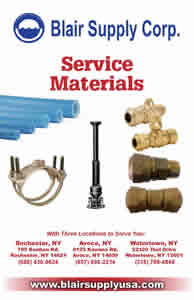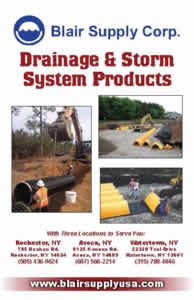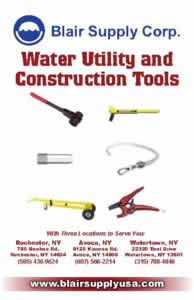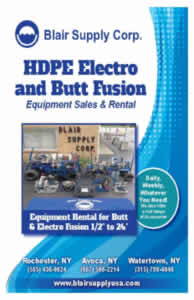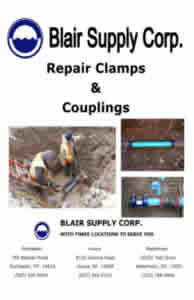Blog
Wastewater & Sewage: Are They the Same?
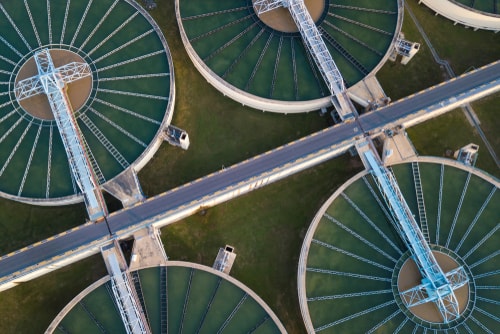
The terms “sewage” and “wastewater” are frequently used interchangeably and also incorrectly. But what exactly is the difference between sewage and wastewater? What are the main differences setting these two apart?
In addition to answering this question, this article will also focus on the different types of wastewater, exploring their most important characteristics. And if you are interested in learning more about sewage and water supply system components and uses, you’ve come to the right place. Whether you wish to learn how a water main repair clamp can be used, what the different applications of HDPE pipes are, or which piping materials to use in municipal water systems, don’t hesitate to contact Blair Supply Corp for more information.
Keep reading to find out why sewage and wastewater are not the same, and what the two main types of wastewater are.
What is the difference between wastewater and sewage?
In order to learn how wastewater and sewage are different, you first need to understand what wastewater actually is. The simplest definition would be this: any water that has been used by an individual, group, or a business is considered wastewater. Now, the easiest way to understand the difference between wastewater and sewage is to say that sewage is considered to be a specific subset of wastewater.
What is wastewater?
Wastewater contains mostly water mixed with a few other elements. For instance, wastewater may contain excess water from drainage or piping systems, as well as small pathogens, organic matter, and inorganic contaminants. The term “wastewater” is also used to refer to stormwater and rainwater, as well as water generated in industrial plants and commercial activity, all of which may pose severe risks to public health.
What is sewage?
The term “sewage”, on the other hand, is most frequently used to describe wastewater coming from various domestic sources, although that doesn’t always have to be the case. Sewage contains many of the elements present in wastewater, plus human waste. While both wastewater and sewage typically require treatment, non-residential wastewater types tend to require different treatment steps than those needed for sewage.
What are the 2 types of wastewater?
Wastewater can be divided into two broad categories. These are:
Domestic
Domestic wastewater typically includes sewage generated from various domestic activities, such as those in homes, schools, hotels, public toilets, restaurants, and so on. This form of wastewater usually contains human feces and urine. There are three main types of domestic wastewater:
- Blackwater is water that comes from toilets, dishwashers, and kitchen sinks. It contains urine, feces, toilet paper, food remnants, cleaning liquids, and other similar chemicals.
- Greywater refers to water that comes from bathroom sinks, washing machines, and baths. This type of domestic wastewater doesn’t contain food waste, feces, and urine, which makes it a more suitable option for re-use than blackwater.
- Yellow water: as you may have guessed based on the name, yellow water refers to water containing pure urine. It doesn’t contain feces, toilet paper, food particles, and other contaminants found in blackwater or greywater.
Industrial
Industrial wastewater typically comes from different commercial and industrial manufacturing processes. Since it may contain dangerous pollutants such as pesticides, oils, pharmaceuticals, silt, and various hazardous chemicals, it can be quite difficult to treat and might pose a risk to environmental and public health.
Looking for a high-performance sewage or water main repair clamp? Contact Blair Supply Corp.

We carry everything from water main materials and pipe repair clamps to highway equipment, so don’t hesitate to contact us for all your utility distribution needs. Get in touch with us today.

